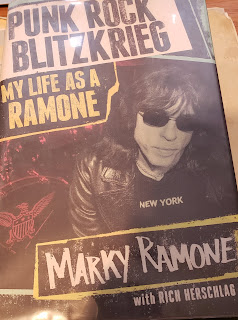 In my quest to seek out and read more classic sci-fi, I recently read H.G. Wells' The Invisible Man. The novel follows the last days of Griffin, a scientist who has discovered the means to turn himself invisible after he has fled London for the countryside to find a way to make himself visible again. He tries to enlist the help of Kemp, a former classmate of his, who is horrified to learn of Griffin's wanton violence in the city. Although Griffin wants to reverse the invisibility process and return to human society, he also revels in the advantages of invisibility and promises a "reign of terror" if he does not get the help he desires.
In my quest to seek out and read more classic sci-fi, I recently read H.G. Wells' The Invisible Man. The novel follows the last days of Griffin, a scientist who has discovered the means to turn himself invisible after he has fled London for the countryside to find a way to make himself visible again. He tries to enlist the help of Kemp, a former classmate of his, who is horrified to learn of Griffin's wanton violence in the city. Although Griffin wants to reverse the invisibility process and return to human society, he also revels in the advantages of invisibility and promises a "reign of terror" if he does not get the help he desires.This novel continues a tradition of gothic sci-fi first pioneered by Mary Shelley in Frankenstein. In fact, this is one book that helps to establish the mad scientist figure. Like Victor Frankenstein and Herbert West (of H.P. Lovecraft's "Herbert West - Reanimator"), Griffin is a lone scientist practicing on the edges of established science. Frankenstein and West both become obsessed with the dividing line between life and death while Griffin is interested in optics. All three share a mania that pushes them to stretch their science beyond their own understanding that eventually leads to their own downfall. All three of these tales may be interpreted as cautionary tales against obsession and, particularly, against the darker turn that science can take, though none of them seem to fault scientific curiosity itself but rather the odd-duck impulses of the solo practitioner.
Wells' narrative approach to this novel is equally interesting. He opens the novel with a mysterious stranger, covered head to toe, arriving at an inn in Iping, a small village. He demands privacy in his rooms, which only causes the landlords to take a greater interest in him. What is peculiar about this introduction is that Wells seems to want to draw the reader into the mystery of who this man is and why he keeps himself covered. This is a good narrative hook in itself, but is a bit ruined by the title of the novel. Nevertheless, the action quickly escalates as Griffin faces exposure (as it were).
It isn't until Griffin finds Kemp that Wells backtracks and narrates, via Griffin's perspective, the process that he used to turn himself invisible. In this re-telling, Griffin also relates the difficulties of invisibility despite its perceived advantages. Just a few examples being his need to remain nude, inability to carry anything to avoid detection, and a need to avoid weather conditions common in England (rain, mist, snow). Because of these restrictions, Griffin informs Kemp, it is impossible to use his invisibility for its most obvious purpose, theft. Instead, Griffin tells him, it is perfect for murder since he can dodge attacks and approach from any angle.
At one point Kemp advises Griffin to throw himself onto the mercy of the country and allow himself to be cared for and examined by the scientific community. In this way, Kemp seems to offer a remedy for all of those mad scientists of the world: return to the institutions. This would also seem to be a way to re-direct the purpose of scientific investigation away from individual gain or hopes of glory back to that of the common good in adherence to the best intentions of the Enlightenment project. Of course Wells does not make this explicit in the novel (nor do Lovecraft or Shelley, for that matter).
I knew the basic outline of The Invisible Man before sitting down to read it but I was surprised by the discussions between Griffin and Kemp in this light. Wells firmly grasps the double-edged nature of science in this way. He both saw its great potential and the dangers lurking in it. This is a theme that he will continue to develop in some of his lesser-known work and that I will probably return to at some point in another post.


